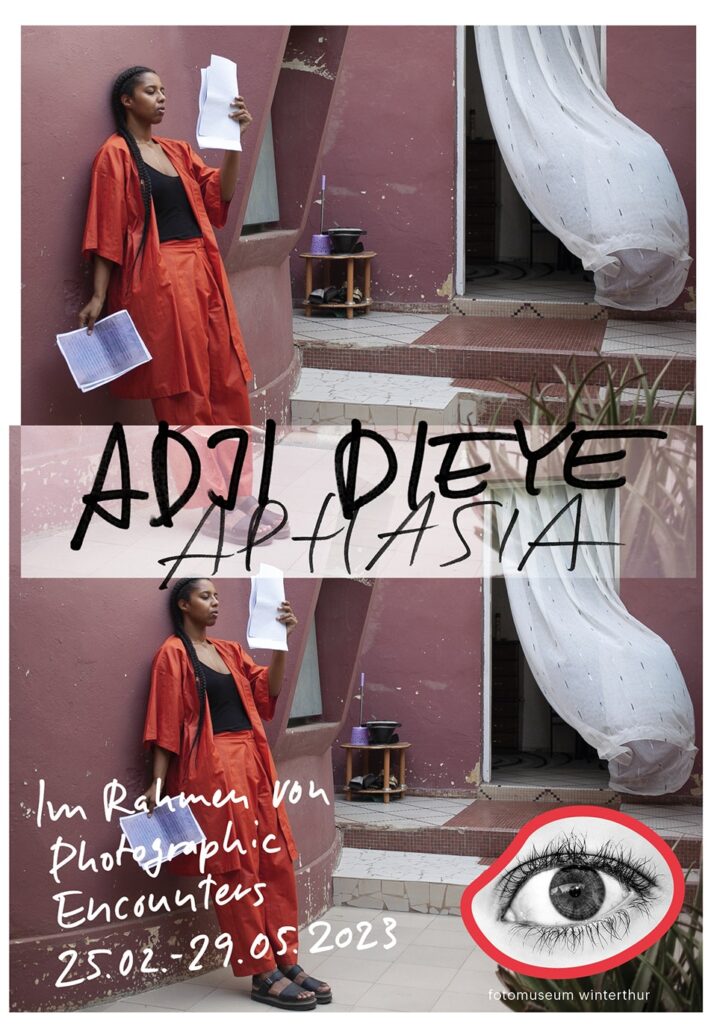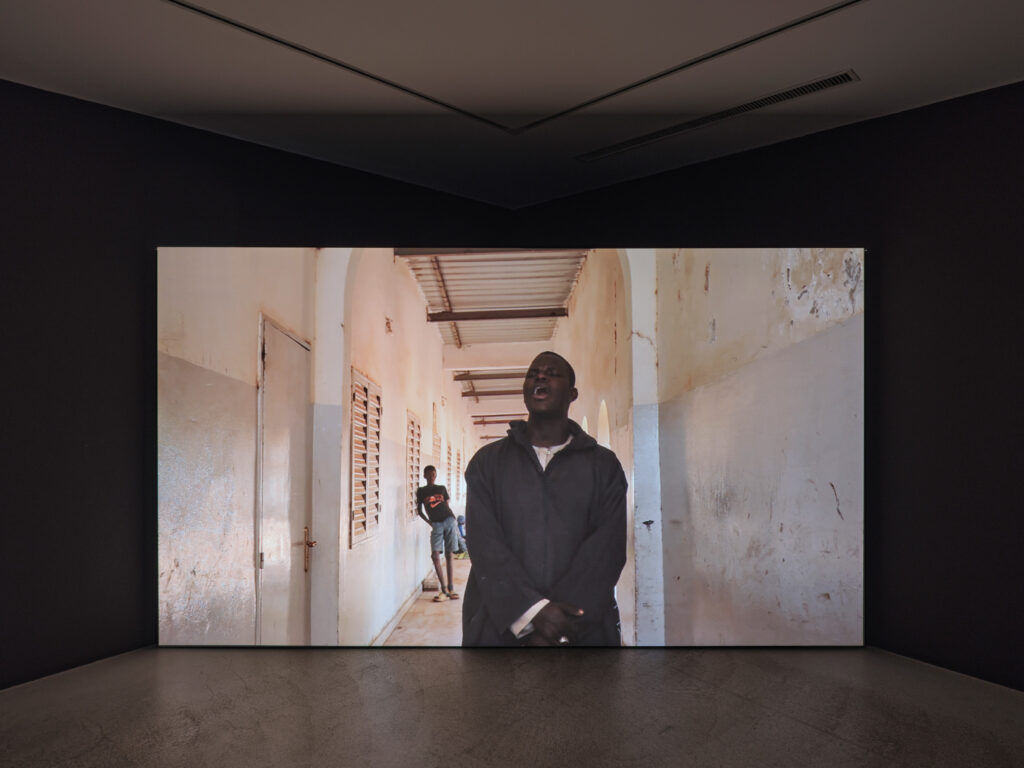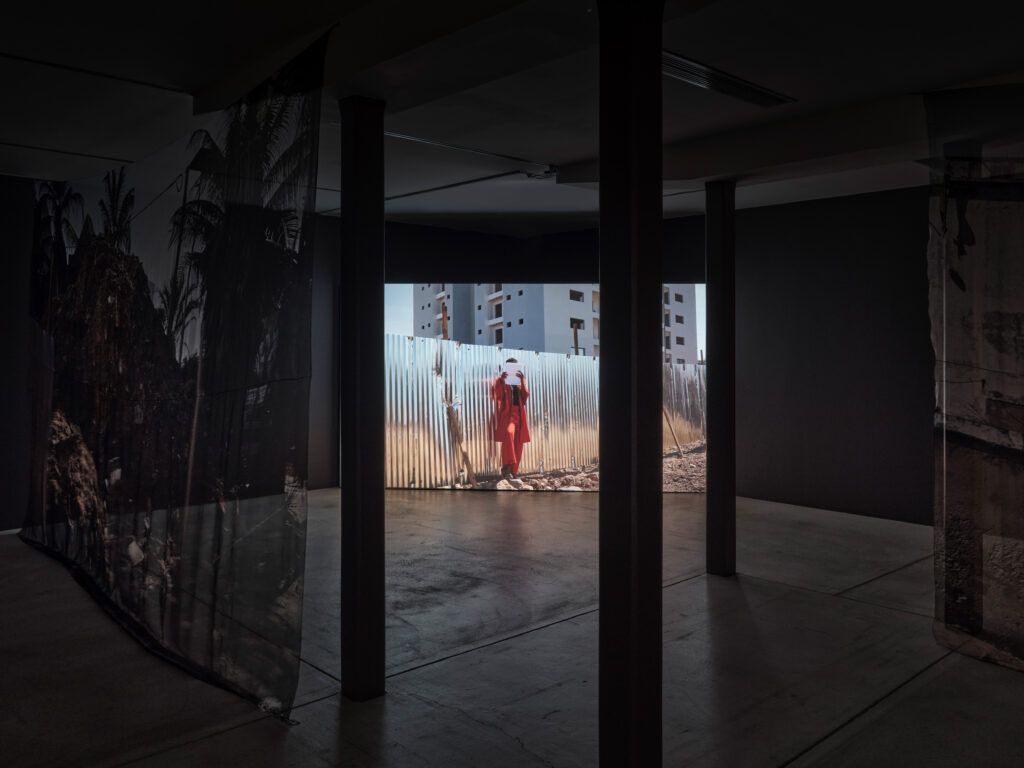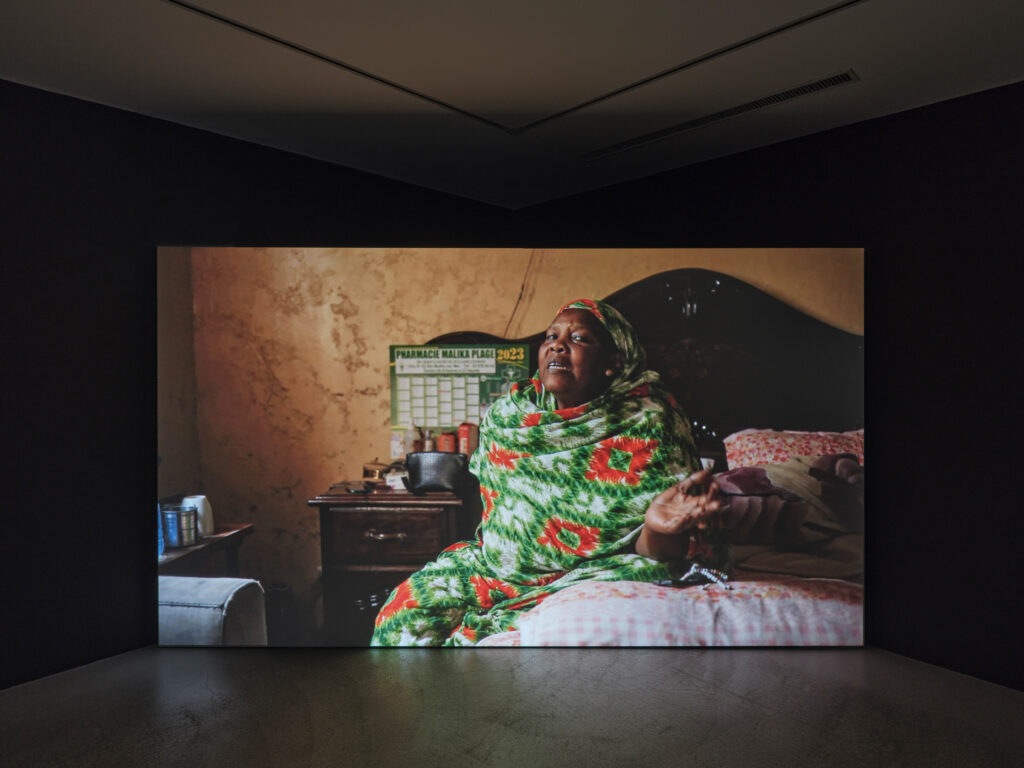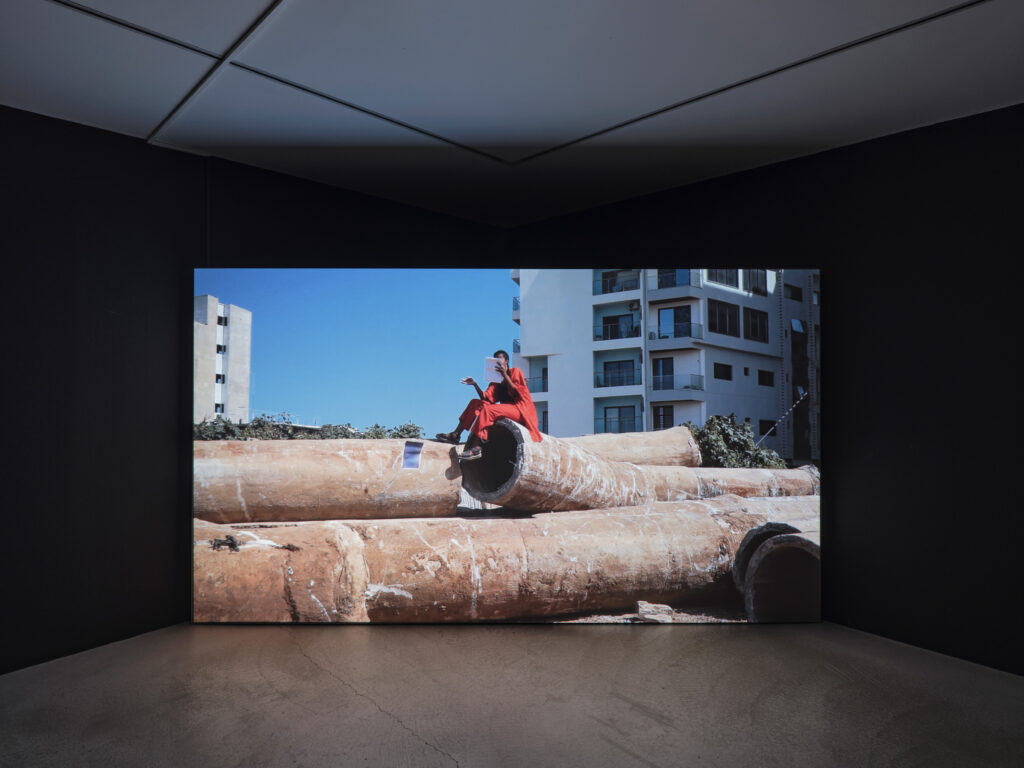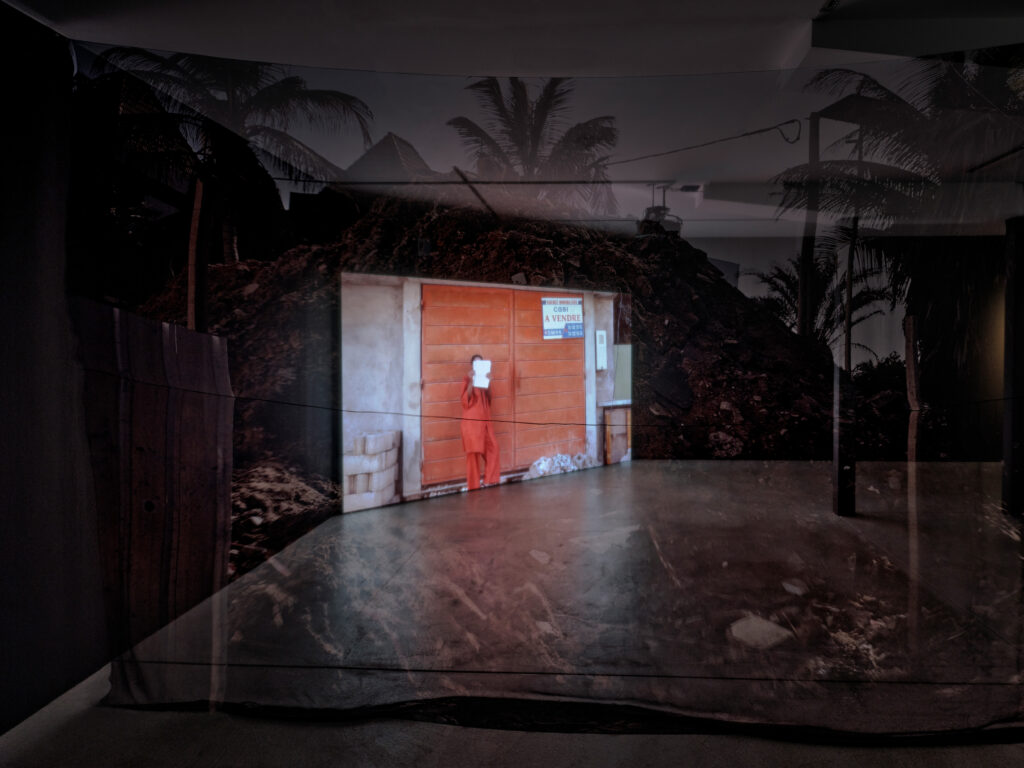25/02/2023 – 29/05/2023
Adji Dieye – Aphasia
as part of Photographic Encounters 2022–2023, Fotomuseum Winterthur
Adji Dieye‘s artistic practice is dedicated to themes of nation-building and postcolonialism. For her first solo show in Switzerland, the artist examined from an Afro-diasporic perspective how language and the urban landscape function in the writing of history, whose linearity becomes the focus of her critical enquiry. At the centre of the exhibition is her video-based work Aphasia (2022), produced during an artist residency of several months in Dakar, and commissioned by Fotomuseum Winterthur.
The loss of language lies at the centre of the two channel video installation Aphasia. In a speech-based performance in different public spaces in Dakar the artist attempts to express herself in French, the official language imposed by a former colonial power that only parts of the population can actually understand in its institutional form. A seemingly neutral language, French continues to operate as a language of business, politics and education in Senegal – even after the country’s decolonisation –, holding on to the space on the country’s history shelves that it gained by gradually replacing vernacular tongues throughout the last century.
As the urban settings of the video-based work continue to change, so does the sound of the artist’s voice, whose tone audibly changes several times until it is no longer the artist’s own voice reading sentences out loud but rather multiple voices of friends and people with a similar background that Dieye added during post-production. Dieye’s artistic study therefore invites us to actively listen to the deeper truths and subjectivities of the diasporic and native community the artist is closely connected to due to her own background. Although Aphasia takes the loss of language as its conceptual starting point, it unfolds into a soundscape that gives voice to both the Afro-diasporic community and the artist’s Senegalese kin ultimately emerging as a polyphonic canon and therefore allowing Black identities and spiritualities to express themselves as living archives. Dieye’s sonic and text-based juxtaposition of two different kinds of archives thus emerges as a work that first refuses to be understood; but ultimately develops into a polyphonic canon, contributing to a contemporary understanding of Black visuality.
curated by Katrin Bauer
The accompanying publication with texts by Katrin Bauer, Olamiju Fajemisin and Frida Robles is available via Christoph Merian Verlag
Selected press:
Frieze: Ann Mbuti, 2023
gallerytalk.net: Anja Grossmann, 2023
